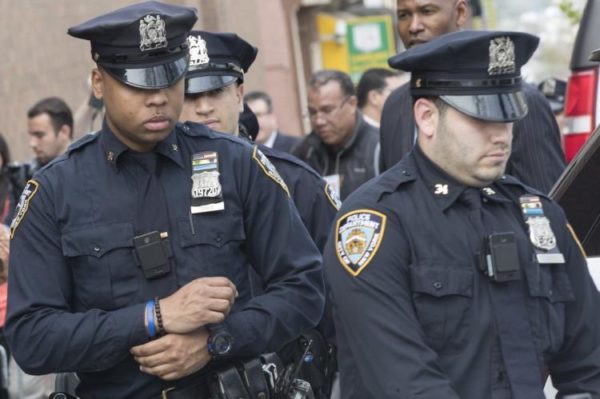NEW YORK, N.Y.—After more than nine years, the campaign to organize JetBlue flight attendants may bear fruit this spring, as they vote on whether to join the Transport Workers Union.

Union supporters collected cards authorizing the TWU to represent them from well over half of the airline’s 4,800 in-flight crew members in less than four months last year, and handed them in to the National Mediation Board in December. The voting began March 19 and will continue until April 17.
“It’s an absolutely huge election,” says TWU President John Samuelsen. A victory at JetBlue would mean that flight attendants would be unionized at all of the top six U.S. airlines except Delta, where the International Association of Machinists has been organizing.
JetBlue’s workers have a “tremendous organizing model,” Samuelsen says. “The main thrust of the organizing has been done by rank-and-file in-flight crew members,” he explains. “We’ve given them resources, training, and guidance, but they’ve done the actual organizing.”
Lyndi Wade, a flight attendant from Massachusetts who has worked at JetBlue for 13 years, was one of the first to get involved, about nine years ago. Back then, she says, JetBlue still had the small, close-knit “culture that the company likes to preach about.” But for her, the turning point came when management representatives told workers that they would “never” remove a row of seats from planes—and the company announced the next day that it would.
That, she explains, reduced the number of flight attendants on a plane with roughly 150 passengers from four to three, both increasing their workload and making it harder for them to get flights to work on. Wade says she then realized that “the only way to get a voice in our flight group was to have a union.”
Union supporters cite several things they want to change. They are employed “at will” and can be fired without cause. They lack due process in disciplinary procedures. They have minimal protection if JetBlue merges with or gets bought by another airline. They generally make less money and work longer hours than flight attendants at unionized airlines.
In-flight crew members have “realized that being at-will employees is no longer a viable option,” says Brendan Moriarty, a Long Islander who’s worked at JetBlue since 2004. If a worker is facing a disciplinary meeting, such as after a passenger complains about them, he says, they can sometimes bring a witness to observe the proceedings—but they can’t have anyone actually speak up on their behalf.
“If we had a union, there’d be a grievance process,” says Michael Zuyus, a JetBlue flight attendant for more than 15 years. He calls it “job insurance.”
JetBlue’s media-relations office, reached by phone, asked LaborPress to email questions and then did not respond to them. B6Direct, an anti-union website that claims to be operated by crew members independently, says unions aren’t needed to prevent people from being fired without just cause, because “we already make sure that is the case at JetBlue” and “every separation goes through five levels of review.”
Previous organizing campaigns failed to get more than half of the workers to sign union cards, the number needed to call an election. The tipping point, says Lyndi Wade, came last April, when news about the company offering a $25 voucher to passengers who complained about crew members using a cell phone on the plane “went viral within our ranks.” “All the flight attendants were disgusted,” she says.
Organizing was hard, says Moriarty, even though 2,200 of JetBlue’s flight attendants are based at John F. Kennedy Airport, because crew members are flying all over the country and don’t often see each other face to face. But last year, he adds, “we were finally able to recruit enough activists to take part in the effort.” Facebook was also a huge help, says Wade.
The campaign, begun in late August, handed in more than 3,000 signed union authorizations in early December. The crew members had “incredible depth in every JetBlue hub,” says Samuelsen.
Anti-Union Barrage
JetBlue management, meanwhile, has barraged crew members with near-daily anti-union messages via email, regular mail, and the iPads they use at work. “It’s been intense, especially over the last couple weeks,” says Moriarty, who got a 15-page glossy pamphlet in his mailbox.
An email sent in September called TWU “an opportunistic and negative third party” that “pops up during rough patches to generate negativity and drama” whose “leaders have a history of criminal behavior.” Most of the company’s anti-union messages, however, are standard riffs about preserving the “direct relationship” between workers and management rather than bringing in a confrontational “third party”; that there is no guarantee that the union can win a contract better than the status quo; and that TWU dues will cost $420 a year.
There are three Websites devoted to the anti-TWU campaign. One, KeepOurCulture.com, is run by the company. The other two, B6Direct.com and TWUExposed.com, claim to be run by flight attendants. Union supporters, however, see the hand of professional union-busters in them. KeepOurCulture and B6Direct use an identical style of graphics, and TWUExposed has links to the hardline anti-union outfits the Center for Union Facts and the National Right to Work Legal Defense Foundation.
JetBlue has been hiring outside anti-union help for several years. In 2012, MWW Group, the PR firm it hired to run a campaign against the Air Line Pilots Association, won an award from the Public Relations Society of America for “crisis communications” after pilots voted against the union. In 2014, after the pilots voted to join ALPA, JetBlue brought in Atlanta lawyer Marc Esposito as vice president for “values relations.” Esposito had been a partner at FordHarrison, a firm that warns clients that “the union win rate has increased as unions have become more strategic and aggressive in their approach to organizing.” More recently, union supporters say, JetBlue has brought in Jones Day, the management-side firm that represented the Noel Canning company in the 2014 Supreme Court case that voided National Labor Relations Board decisions made by President Barack Obama’s recess appointees.
All new hires have to go through anti-union training, Zuyus says, and a supervisor once threatened to have him arrested for talking to coworkers walking to the AirTrain after they got off work at JetBlue’s JFK terminal.
Another argument management uses is that it often takes years to win a first union contract, and workers won’t get raises during that period. The Air Line Pilots Association has not gotten a contract with JetBlue after three years of negotiations. It asked for federal mediation last summer, saying “We are still waiting for JetBlue management to offer serious proposals to conclude a contract that reflects our contributions to JetBlue’s success.”
The company’s biggest argument against a union is that it would destroy the culture developed when JetBlue was still a small airline. That atmosphere “means something to workers,” says Samuelsen.
But “that small-family vibe that was there when I started has ceased to exist” as the company got bigger, says Moriarty. It’s his fellow crew members, who’ve won awards for customer service, that make him proud to work at JetBlue, he adds.
“This is a positive movement to improve the culture and give the flight attendants peace of mind,” says Zuyus. “It’s about having a seat at the table and a real say in our work rules, pay, and benefits.” The “Inflight Values Committees” that are supposed to give workers a voice are “just providing feedback” and have no power, he adds.
He finds the claim that the union is an interloper absurd. “Here I am in my uniform,” he says. “Do I look like a third party?”
“We don’t want to burn the house down,” says Wade. “This is about rebuilding our foundation. We want to preserve our culture by empowering the flight attendants to do the job we were hired to do.”
The purpose of a union is “to bring workers together,” notes Moriarty. “It’s called a union, damn it!”




1 thought on “Inside the JetBlue Flight Attendants’ Fight for Workplace Justice”
If JetBlue really cared about its pilots and flight attendants, they COULD honor the requests of both labor groups overnight… nothing is stopping JetBlue from doing the right thing.
It’s about time they live up to their own “core values”.
Pilots and flight attendants are the victims here.
Did you know that the pilot group are the lowest paid (up to 40% lower)…